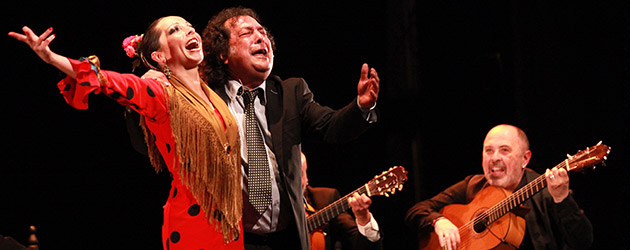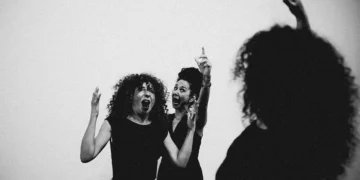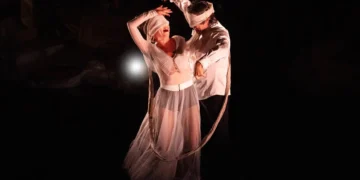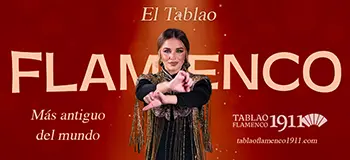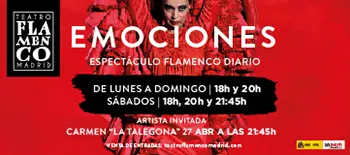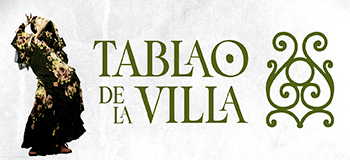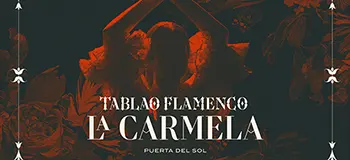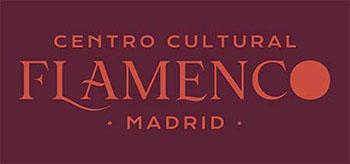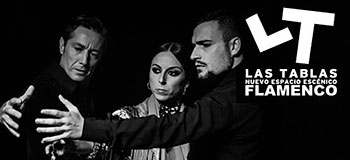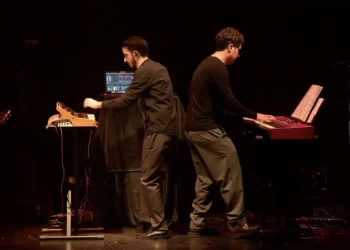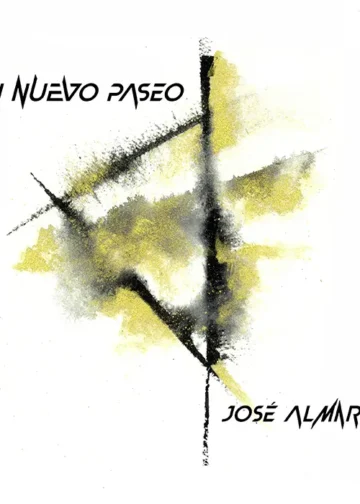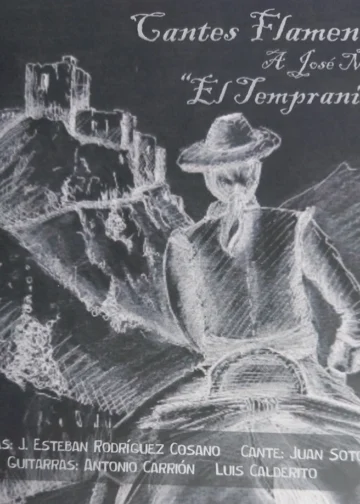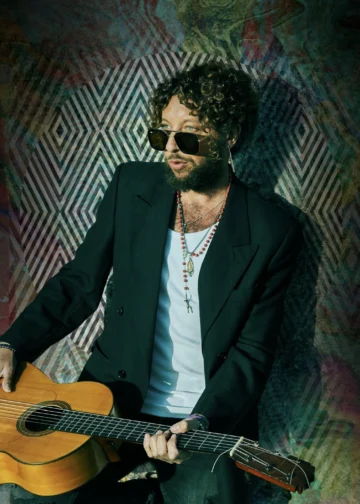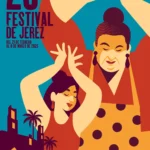Text: Estela Zatania
Photos: Ana Palma
Tuesday, February 24th, 2015. Jerez de la Frontera
Special 19th Festival de Jerez – All the information
ROSARIO TOLEDO ON THE LINE…PLEASE HOLD…
The flamenco schedule for Tuesday in Jerez did not include the Teatro Villamarta, but there was no danger of getting bored. At five in the afternoon, young singer Maizenita presented his new record at the Centro Andaluz de Documentación del Flamenco with the guitar of José Ignacio Franco. Shortly afterwards, at the Sala Compañía, Algeciras dancer Noelia Sabarea (Photo gallery – video ) presented her show «Flamenco, Flamenca». Her powerful intense dancing was backed up by guest guitarist Daniel Casares, in addition to the voices of Esperanza León and Manuel Peralta, the guitar of José Manuel León and the percussion of Antonio «El Schuster». And at the Guarida del Ángel, celebrating its Off Festival, none other than Farru was on the bill.
ROSARIO TOLEDO «ADN»
Sala Paúl, 900pm
Dance and choreography: Rosario Toledo. Guest artist (cante): Juan Villar. Special collaboration (cante): David Palomar. Guitar: Rafael Rodríguez «El Cabeza», Periquín Niño Jero. Percussion and palmas: Roberto Jaén.
A great deal of excitement surrounded Rosario Toledo's presentation with special guest artist, singer Juan Villar. The Sala Paúl was packed to the rafters, and additional seats were added for the occasion. It's that Rosario is different. Creative, intelligent, a free spirit, spontaneous, entertaining, brave. All of that, in addition to being a terrific dancer and artist.
She has original choreographic and theatrical ideas. The first scene of this work is a perfect jewel, a hermetic drama contained within one single dance. We see Rosario seated on a sofa…distracted, superficial, somewhat bored. The telephone rings, and we can tell from her face and body language that it's bad news. David Palomar starts up singing some boisterous alegrías, Rosario cries, she stands up as if moved by an invisible force, she dances, she smiles, she stops, she cries some more but is again seduced by the rhythm and the singing…and so it goes several times. The force of the contrasting emotions is as unbearable as irresistible, and the message is clear: Rosario Toledo needs to dance as much as she needs to breathe.
In another scene, she appears in black trousers and jacket, with sunglasses and a handbag. Palomar's milonga sets the Caribbean mood, and Rosario lets her hair down. Literally. She shakes and messes up her hair until it forms a tangled mass. The singer dances with her, there is delightfully subtle insinuation, they're on the same artistic wave-length and it's a joy to watch.
Juan Villar and Periquin with siguiriyas provide an abrupt change of pace. The singer is in excellent form, and it's clear he's feeling good. He closes with his impressive version of the siguiriya of Cuco.
David assumed the responsibility of interpreting a fine set of soleá de Cádiz, with the versatile percussionist Roberto Jaén providing knuckle-rapping as accompaniment.
Villar returns to sing soleá for Rosario, with her hair now neatly pulled back giving her a severe look. Juan just sings better and better with the dancer. Some people still believe that singing for dance ruins the singer, but this maestro doesn't sacrifice one iota of his flamenconess and communicative power.
David sings fandangos, and guitarist Rafael Rodríguez, who deserves a monument for the work he does in this show, plays «por medio» («A» position) recalling the best-known falseta of Alosno.
Another magical moment is Rosario's dance with Roberto Jaén…yes, the percussionist…having some fun with a bottle of anisette.
Rosario is outstanding when she rap-sings the tanguillo of the Guapas de Cádiz, and some others. Somehow she ends up in her underwear…don't ask…what a talented actress. A classic caña with white bata de cola and shawl, and the famous closing verse, «Y yo le pido la muerte, y no me la quiere mandar», is repeated obsessively until it becomes a prayer, as the dancer leaves the stage like an elegant goddess.
There still was Villar por bulerías, his famous cuples sung to Rosario, including his trademark «Ya todo acabó», ['it's all over'], a line that Rosario murmurs to herself over and over in a barely audible voice.
The telephone rings. This time, she doesn't pick it up.



